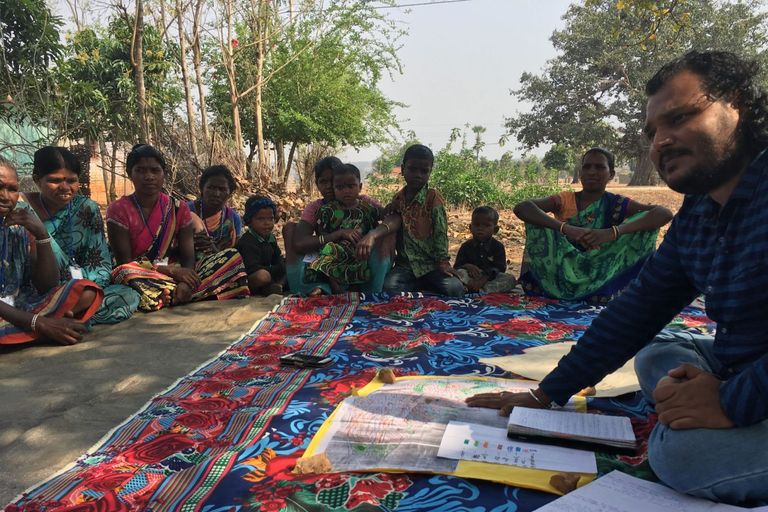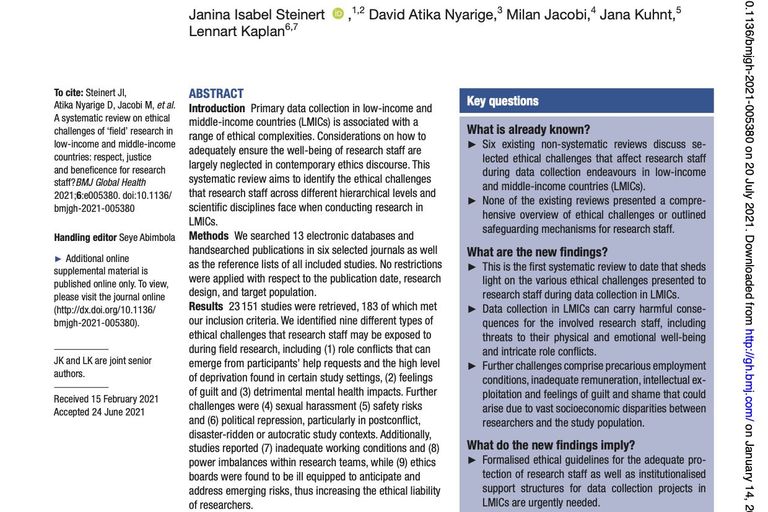Sujets correspondants

Some steps for decolonising international research-for-development partnerships
EADI Blog by Katarzyna Cieslik, Shreya Sinha, Cees Leeuwis, Tania Eulalia Martínez-Cruz, Nivedita Narain and Bhaskar Vira

Risk dumping in field research: some researchers are safer than others
EADI BLOG by Linda Johnson and Rodrigo Mena
Image : Charl Folscher on Unsplash
A systematic review on ethical challenges of ‘field’ research in low-income and middle-income countries: respect, justice and beneficence for research staff?
Primary data collection in low-income and middle-income countries (LMICs) is associated with a range of ethical complexities. Considerations on how to adequately ensure the well-being of research staff are largely neglected in contemporary ethics discourse. This systematic review aims to identify the ethical challenges that research staff across different hierarchical levels and scientific disciplines face when conducting research in LMICs.

Equitable Partnerships Resource Hub
UKCDR and ESSENCE launched a new Equitable Partnerships Resource Hub, which brings together guidance, tools and principles on equitable partnerships from across the world.

Do no harm? Field research in the Global South: Ethical challenges faced by research staff
The rise of randomized controlled trials (RCTs) to rigorously evaluate development policy is characterized by a wide range of ethical complexities. While the literature has identified ethical challenges pertaining to study participants, we argue that the principle of “do no harm” should equally apply to research staff. Based on an ongoing systematic review and interviews with research staff at different hierarchical levels and world regions, we identify key ethical challenges of field research in the Global South, including threats to physical and emotional wellbeing. Moreover, prevailing power imbalances can create precarious working conditions and inadequate acknowledgement of contributions. An open discussion and learning from “best practices” is needed to address these gaps in development research.
Un guide pour les partenariats transfrontaliers de recherche
La recherche transfrontalière et interculturelle en partenariat est un processus continu, qui vise à créer des connaissances solides, tout en générant une con- fiance et un apprentissage mutuels et un sentiment partagé d’appropriation. À partir de novembre 2025, le Guide for Global Research Partnerships remplacera le présent guide.


